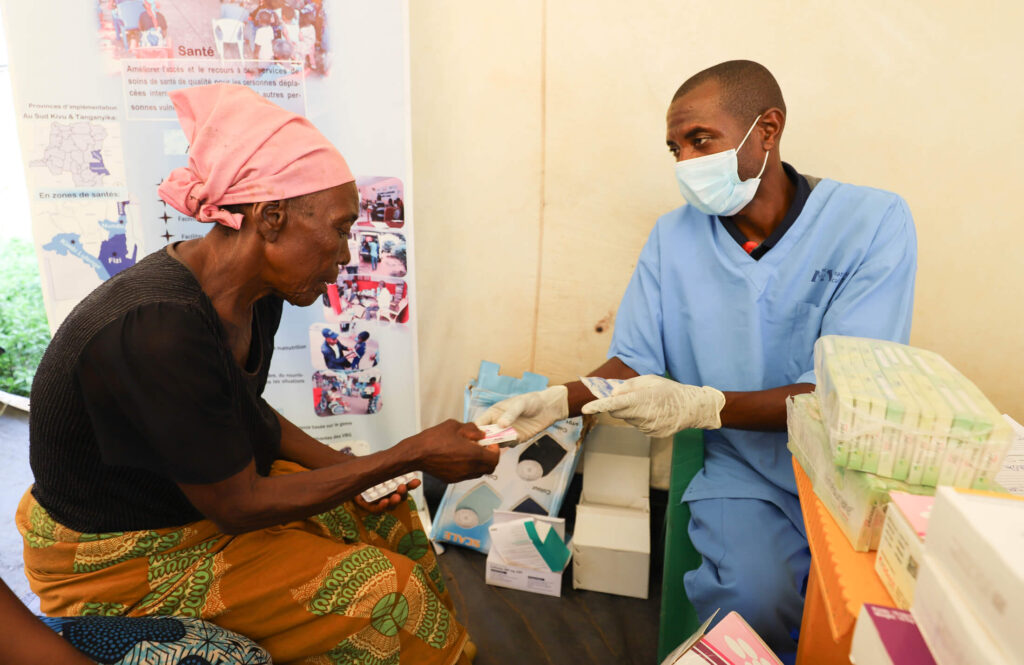Some of the residents of Kiliku village in North Kivu, Democratic Republic of the Congo (DRC), had never seen a car in person before International Medical Corps’ mobile medical unit (MMU) arrived in March. Isolated by decades of armed conflicts, villagers had gone months without access to quality healthcare.
Like many people in Kirotshe health zone, they abandoned their homes in search of safety from the ongoing regional conflict. Though they initially found shelter at a nearby camp, an armed group destroyed it, forcing them to return to Kiliku—only to find that their homes, crops and farming tools were in shambles, ransacked by combatants. Our team travelled over rocky terrain on washed-out roads to reach them and provide lifesaving humanitarian aid to the community.

Jean Paul Cirhuza Matabaro, one of our seasoned, local healthcare workers who joined our DRC team to help International Medical Corps respond to the 2019 Kivu Ebola outbreak, says, “The MMU deployments in Kirotshe are some of the most critical interventions I’ve participated in. It’s shocking how little humanitarian aid the people here can access, even though they have faced years of armed conflict and epidemics.”
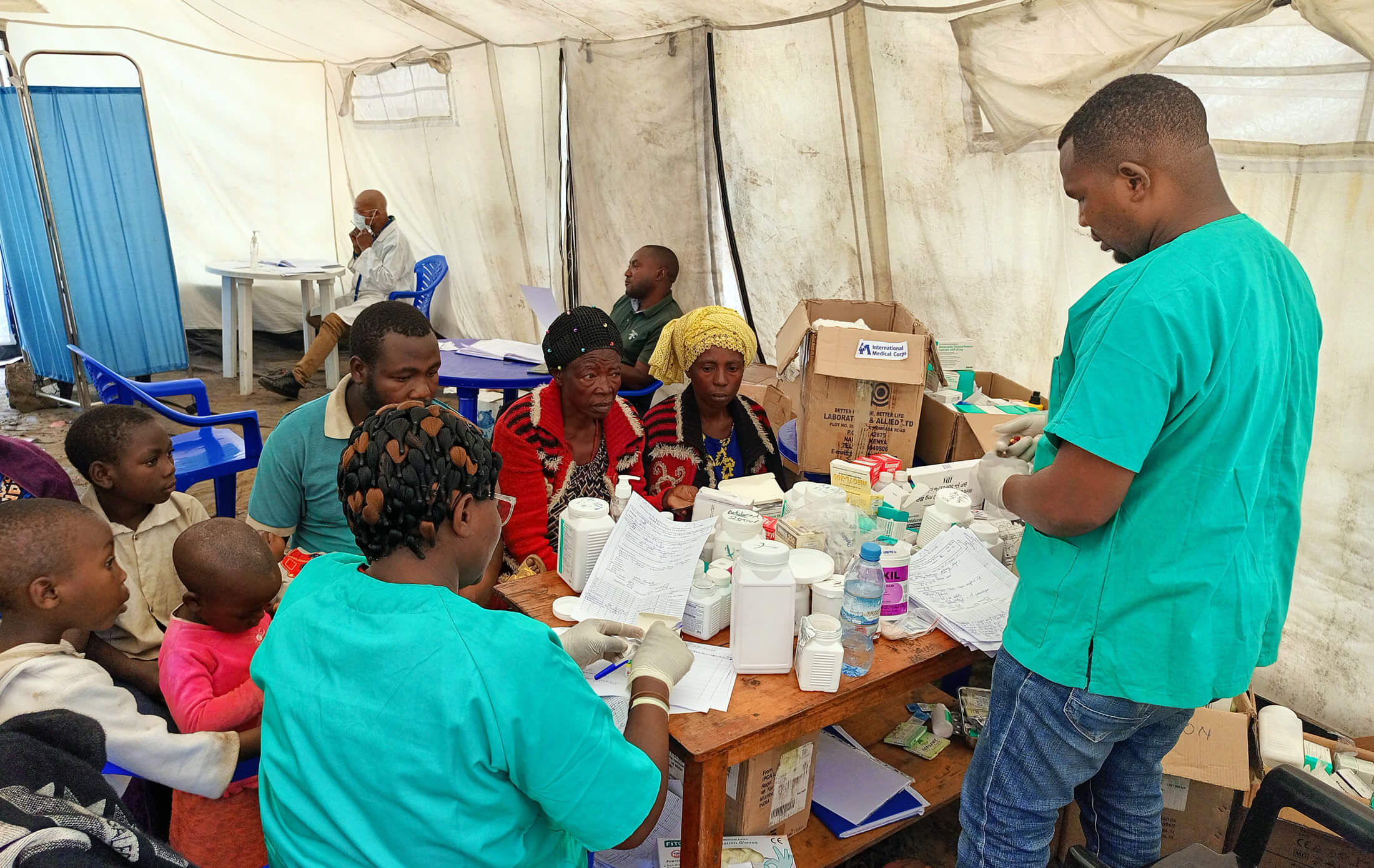
Kirotshe health zone is one of the areas most affected by the conflict in North Kivu, which has been ongoing for years. Violence flared up again in January, when an armed group occupied key areas of North and South Kivu, killing and displacing thousands. The health system, which was already weak due to decades of instability and severe poverty, took another big hit amid the violence and disruption. Today, health facilities in this region of the DRC are completely overwhelmed by the number of patients. Many have been looted and health providers have fled the area, leaving facilities understaffed and undersupplied.
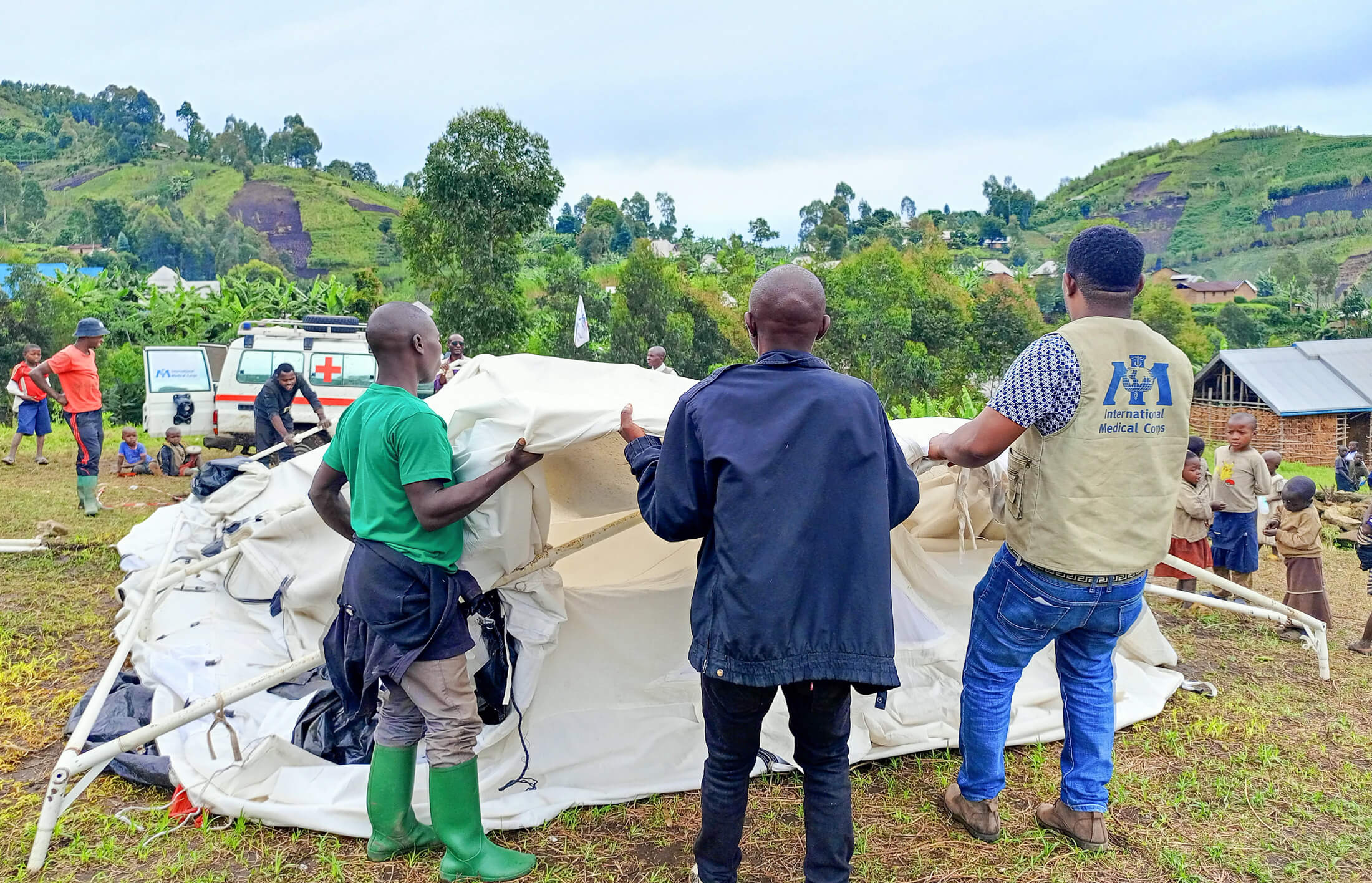
Our first MMU in March treated more than 400 patients across a four-day deployment. Recently, the community’s needs have skyrocketed—alongside obstacles to care. Though individual consultations at the health centre closest to Kiliku village cost only $0.60 per visit, that is far too expensive for most community members. This means that our MMU provides the only accessible, quality healthcare in the village.
Before International Medical Corps’ interventions, community members would often treat illnesses with traditional medicine, forgoing conventional medicine altogether. When they did seek formal treatment, they had to travel long distances, often on foot, to reach an expensive health facility. These journeys were often dangerous, with unmaintained roads in disrepair that took travellers through active conflict zones.
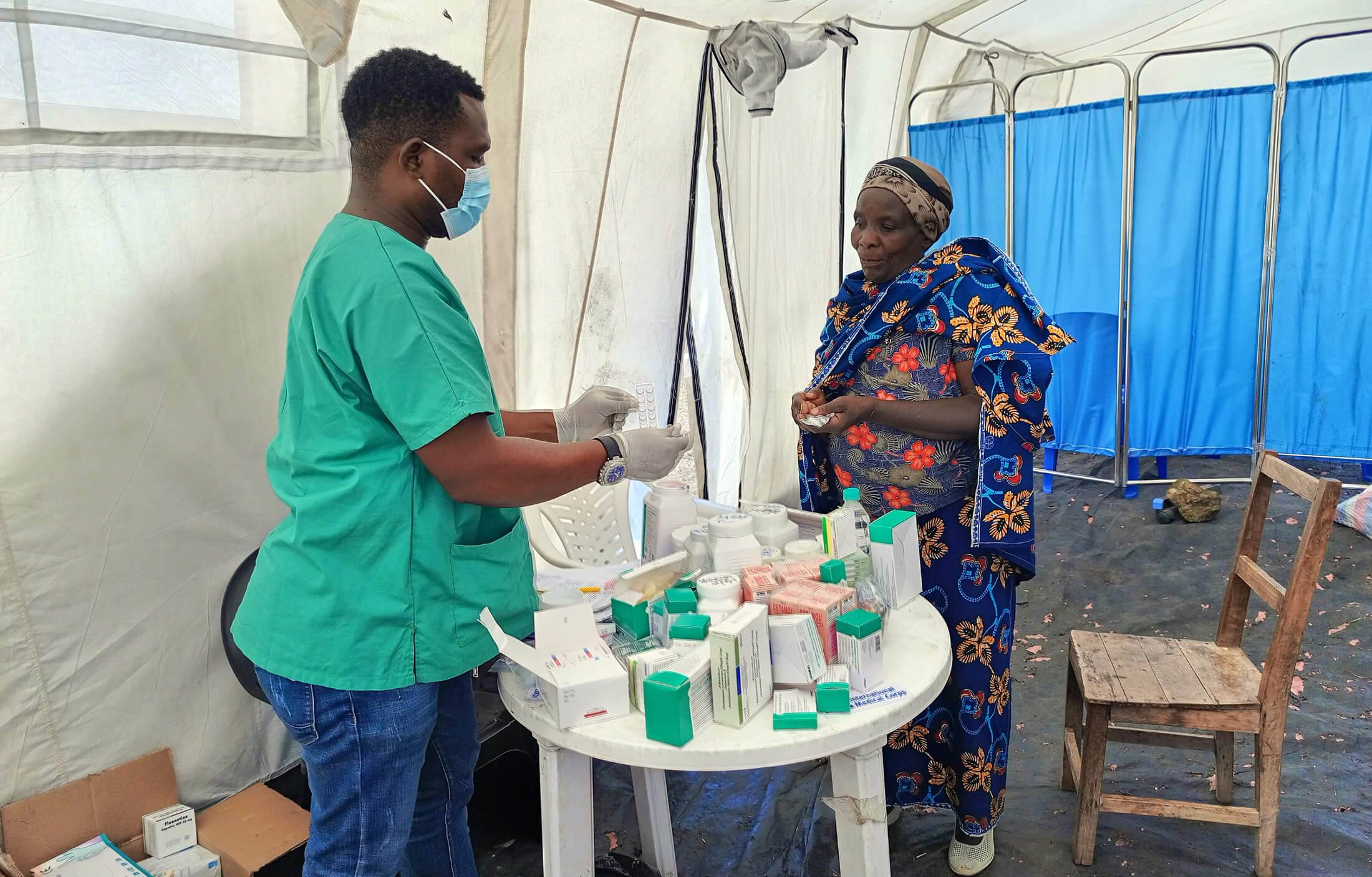
Our mobile clinics provide villagers like Alice Borah, 55, with lifesaving medical support and medicine. After a visit to our MMU, Alice is now receiving treatment for epilepsy—without which she would experience sporadic bursts of unconsciousness, known as petit mal seizures. Our team also provided Alice with a referral to a doctor to monitor her condition, ensuring that the cost of care no longer prevents her from receiving treatment.
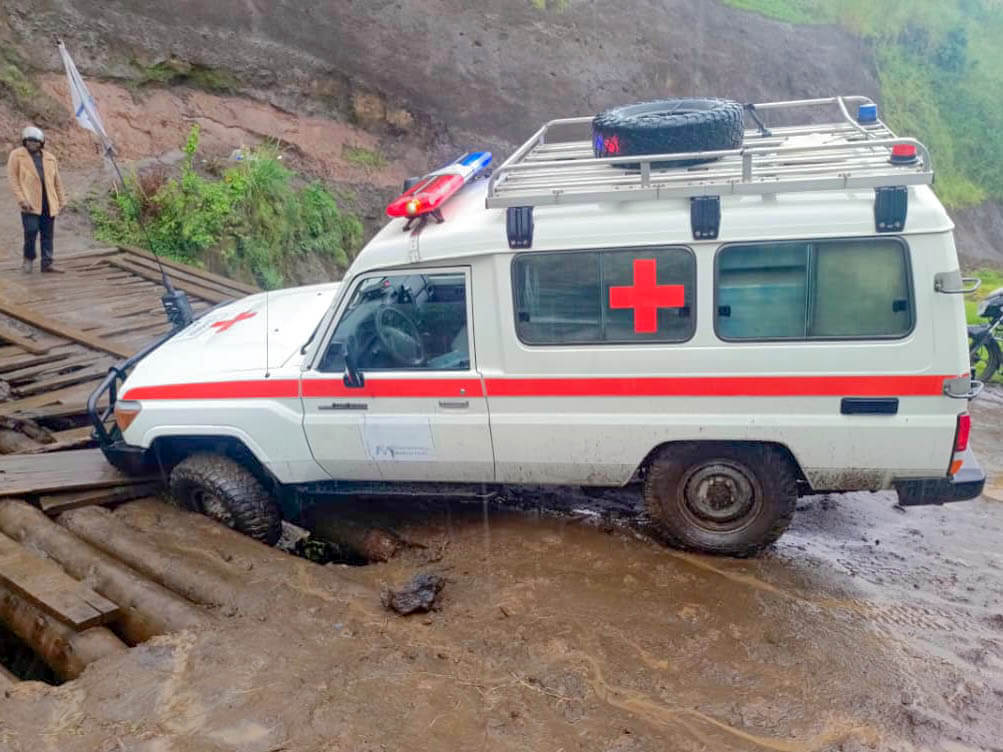
Our MMUs are an outright success. People from Kirotshe have sent letters of support to our offices, and officials from the village of Matanda have credited our work as their motivation to rebuild a bridge and better connect their people with health services and resources. Kirotshe health zone officials have expressed gratitude to our team in a letter, giving their “sincere thanks for International Medical Corps providing free treatment to our population, who have only recently left displacement camps, impoverished by the various intermittent wars.”
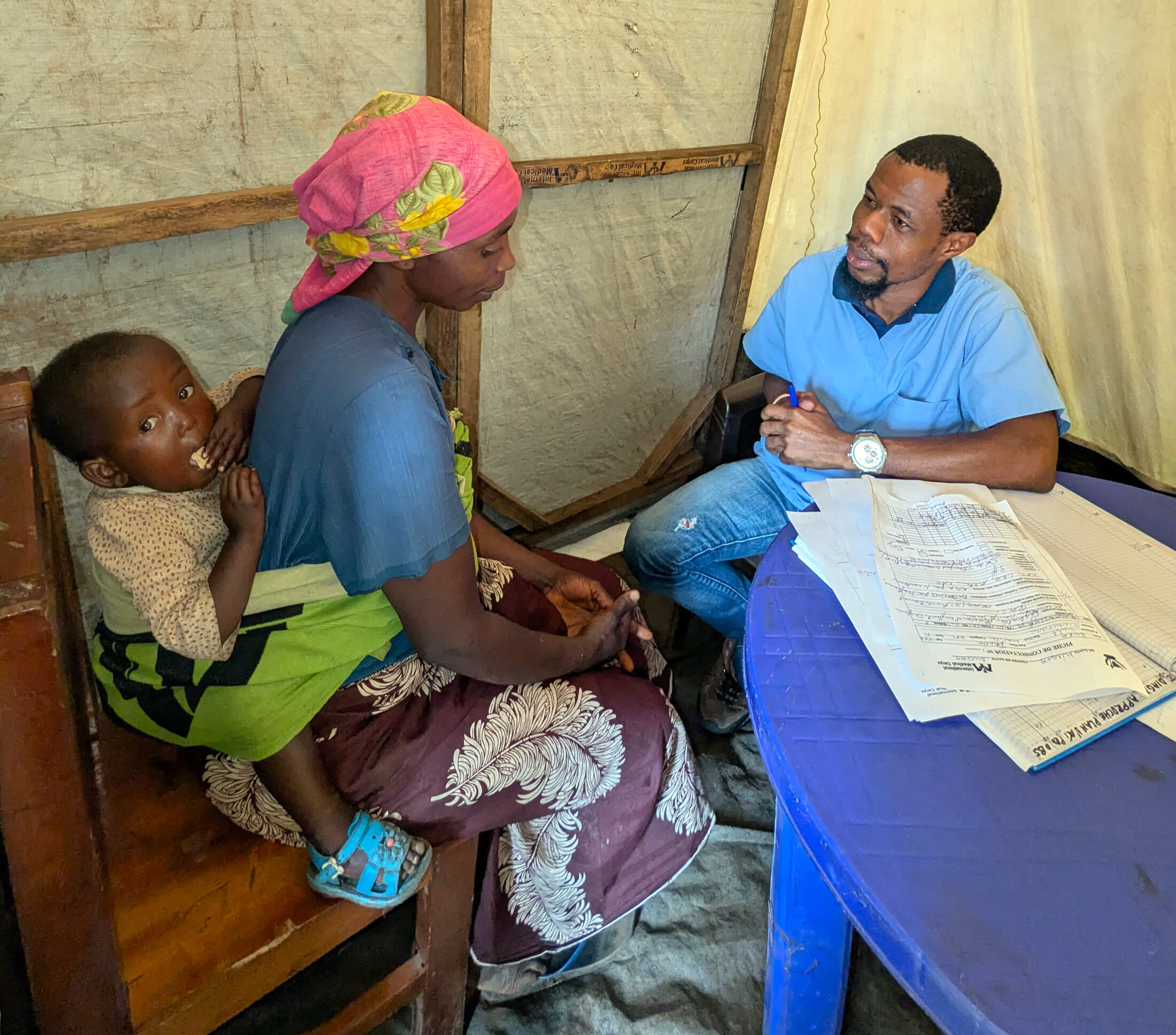
Many of the patients that International Medical Corps staff treat—including persons with disabilities and children under 5—still need aid. Since our first deployment in Kirotshe this March, we have been able to send an additional four mobile medical units that have treated more than 1,800 patients. Given the success of these mobile medical units, International Medical Corps plans to continue supporting this area’s health needs by deploying lifesaving MMUs as often as possible.
